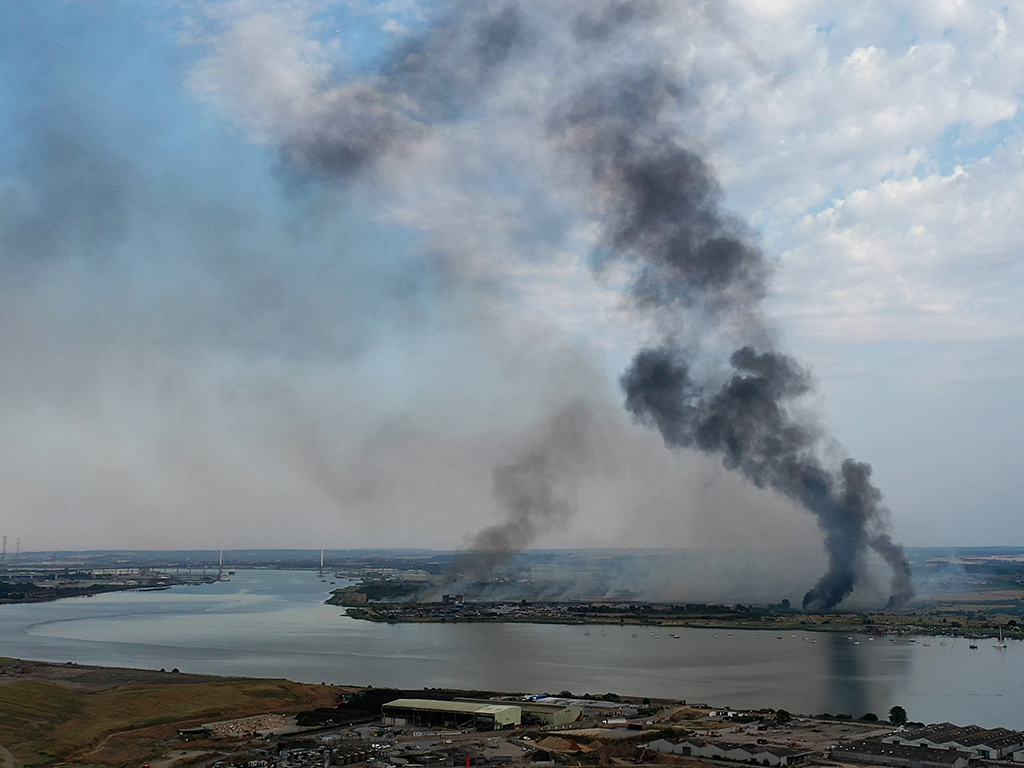
Despite the UK having its hottest day on 19 July, with temperatures exceeding 40°C in some regions, climate change has hardly had a role in the Conservative Party leadership contest. It was largely absent from Monday’s televised debate between Liz Truss and Rishi Sunak, the two remaining candidates to be the next prime minister. The argument goes that climate change is not considered a priority by party members, but new polling from the Energy and Climate Intelligence Unit suggests this is too simplistic – members are far more open to action than their prospective leaders seem to be.
Sixty-three per cent male and with a higher percentage of over-65s and over-50s, the Tory party is not representative of the UK public. In a recent YouGov poll for the Times, only 4 per cent of its members put reaching net-zero emissions by 2050 in their top three policy priorities. Truss and Sunak seemed to be playing to this audience on Monday. Climate change received just two minutes of attention in the hour-long debate. “What three things should people do in their lives to help tackle climate change,” the candidates were asked, allowing the former chancellor and the Foreign Secretary to get away with focusing on individual actions rather than their own policies.
The question was “a good [one] to ask your priest, but not your potential prime minister”, says Myles Allen, professor of geography and physics at the University of Oxford. Indeed, Sunak’s answer, which included talking about his family’s “obsessive” recycling habits was criticised for failing to reflect the gravity of the climate crisis.
Sunak, while he backs offshore wind, insists he would retain the moratorium on onshore wind. A report in the Daily Express suggested he could encourage insulation over helping people to replace gas boilers with lower-emitting heat pumps; both are needed, and as chancellor he failed to provide support for home insulation. Meanwhile, Truss’s proposal to remove green levies on energy bills and to “look for better ways to reach net zero” through “using less”, “wasting less” and “innovation” are no kind of policy at all.
Yet polling published on 28 July by the Energy and Climate Intelligence Unit, a British think tank, shows that the vast majority of Conservative Party members do support action, even if they don’t rate it as a top priority. Eighty-five per cent of party members would support incentives and investment for homeowners and landlords to improve home insulation and energy use. More than two thirds would back a new generation of onshore and offshore wind energy, and a similar proportion support more solar parks and panels. Such measures would also “bring down bills, with wind and solar being by far the cheapest energy sources”, says Jess Ralston, senior analyst at the think tank. “New offshore wind farms are now four times cheaper than gas power stations.” Analysts predict that average energy bills could hit £3,363 from January 2023.
Allen reluctantly suggests Sunak is a “safer” pair of hands. He grasps at Sunak’s mention during the debate of carbon capture and storage projects in the north-east of England as vague proof that he might do better than his opponent.
The candidates’ vague references in the debate to the need for innovation to get the UK to net zero don’t reflect the real problem, Allen insists. What’s missing, he says, is “policy innovation, not technological innovation”. The technologies to move from fossil fuels to a clean energy economy largely exist, and the UK has done a better job than many countries of phasing out coal and increasing offshore wind power – renewables provided 40 per cent of Britain’s electricity in 2021, government statistics show. Yet Sunak and Truss are focusing on “small, subtle, individual” changes, says Allen, rather than the wholesale transformation of the UK’s energy system.
Radical systemic change is needed if the worst impacts of climate change are to be avoided. Climate change made the heatwave at least ten times more likely, shows research published today (29 July) by international scientists. Heatwaves lead to deaths, and an increase in emergency calls puts pressure on the already over-stretched NHS and on care services supporting the elderly. Neither Sunak nor Truss appears to want to look any of these facts in the face. This wilful ignorance will be bad for energy bills and bad for climate action. The UK may be about to take a “big step backwards”, worries Allen, at a time when the country and the world can least afford it.
Clara Aberneithie is a Danson Foundation intern at the New Statesman.
[See also: Tory members are taking an enormous gamble by backing Liz Truss]






